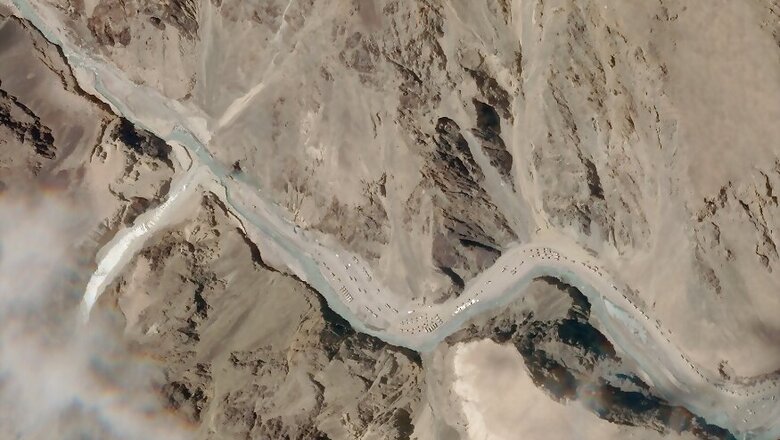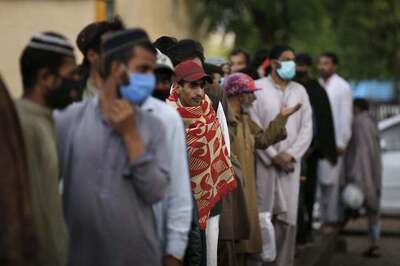
views
India has completed construction of a strategically important bridge over the Galwan river in eastern Ladakh, notwithstanding strong opposition to it by the Chinese military, government sources said on Friday.
The construction of the bridge was one of the reasons behind the aggressive behaviour by China's People's Liberation Army in the region that triggered the six-week standoff between the two sides.
The 60-metre bridge is around four kilometres east of the confluence of Shyok and Galwan rivers, and links the narrow mountainous region to the Shyok-Daulat Beg Oldi road.
The sources said the bridge will facilitate quicker movement of Indian troops in the area that is not very far from the site of the violent clashes in Galwan on Monday evening.
"The bridge will definitely improve movement of Indian troops in the region. We completed construction of the bridge despite the military standoff and Chinese army's strong protest," said a senior military official on condition of anonymity.
The Galwan Valley was the site of the violent clash between the two militaries on Monday evening in which a Colonel and 19 other Indian Army personnel were killed. The People's Liberation Army has not yet talked about the number of casualties it suffered during the cross border clash, the worst in 45 years.
The clash in Galwan Valley is the biggest confrontation between the two militaries after their 1967 clashes in Nathu La when India lost around 80 soldiers while the death toll on the Chinese side was over 300.
The Chinese soldiers used stones, nail-studded sticks, iron rods and clubs in carrying out brutal attacks on Indian soldiers after they protested the erection of a surveillance post by China on the Indian side of the Line of Actual Control in Galwan.
Military sources said the two sides are holding another round of military talks on Friday.
In a telephonic conversation with his Chinese counterpart Wang Yi on Wednesday, External Affairs Minister S Jaishankar called the clashes a "premeditated" action by Chinese PLA.
India has already trashed the Chinese army's claim of sovereignty over Galwan Valley, saying such "exaggerated" and "untenable" claims are contrary to the understanding reached during a high-level military dialogue on June 6.
The two armies were engaged in a standoff in Galwan and several other areas of eastern Ladakh since May 5 when the two sides clashed on the banks of the Pangong Tso.
The situation in the area deteriorated after around 250 Chinese and Indian soldiers were engaged in a violent face-off on May 5 and 6. The incident in Pangong Tso was followed by a similar incident in north Sikkim on May 9.
The India-China border dispute covers the 3,488-km-long LAC. China claims Arunachal Pradesh as part of southern Tibet, while India contests it. Prior to the clashes, both sides have been asserting that pending the final resolution of the boundary issue, it is necessary to maintain peace and tranquillity in the border areas.


















Comments
0 comment